Bitcoin (BTC) has been locked in a tight trading range, fluctuating between $30,000 and $31,000. While some on-chain metrics show that this ongoing sideways movement has been observed before Bitcoin’s previous bull runs, there is little to indicate that a significant shift could happen soon.
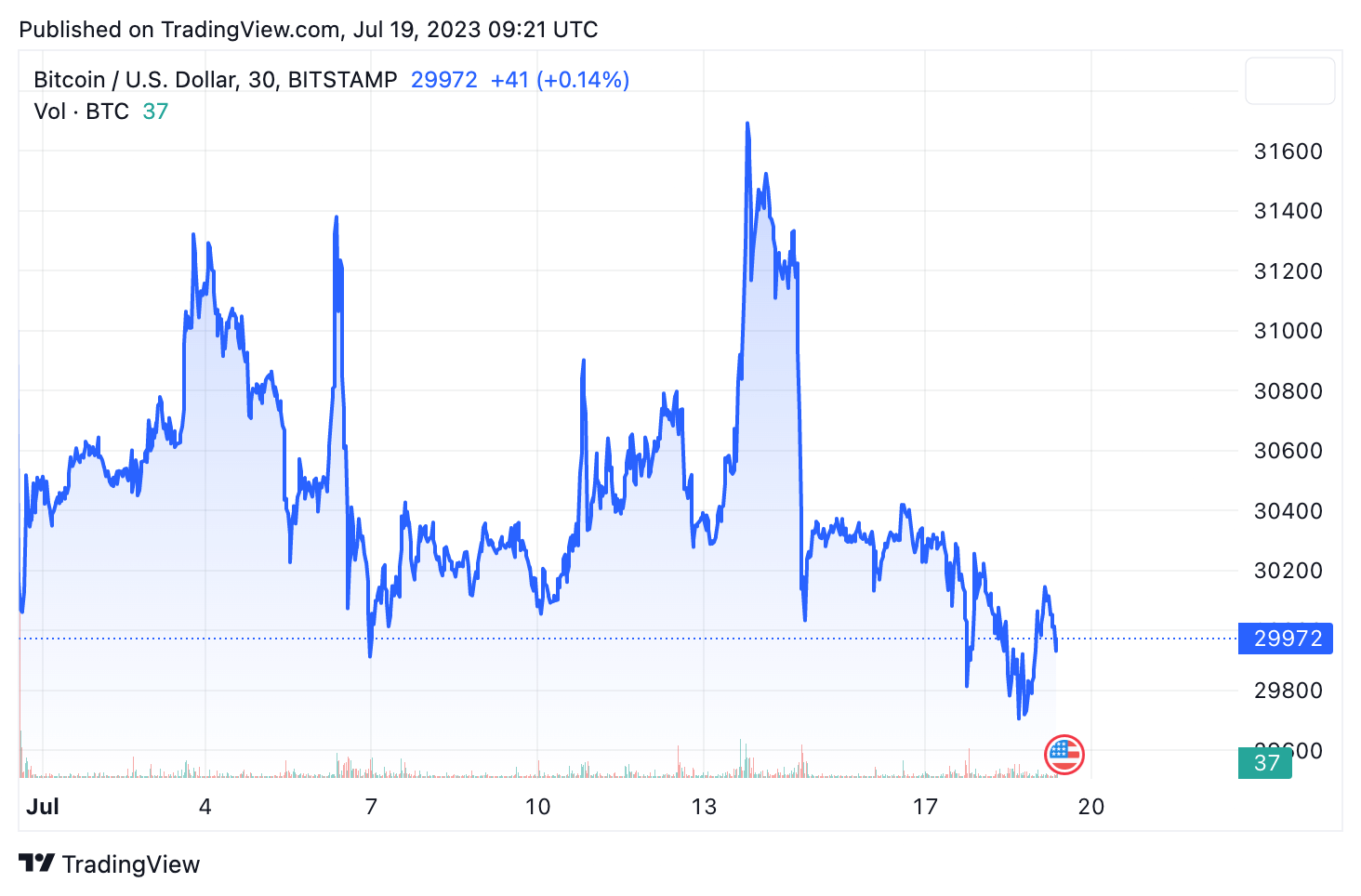
The derivatives market, particularly the options market, reveals a divided sentiment about Bitcoin’s performance. This division is evident when analyzing Bitcoin options delta skew. The delta skew for options contracts expiring one week, one month, three months, and six months from now is 0.48%, -3.8%, -5.83%, and -8.62%, respectively.
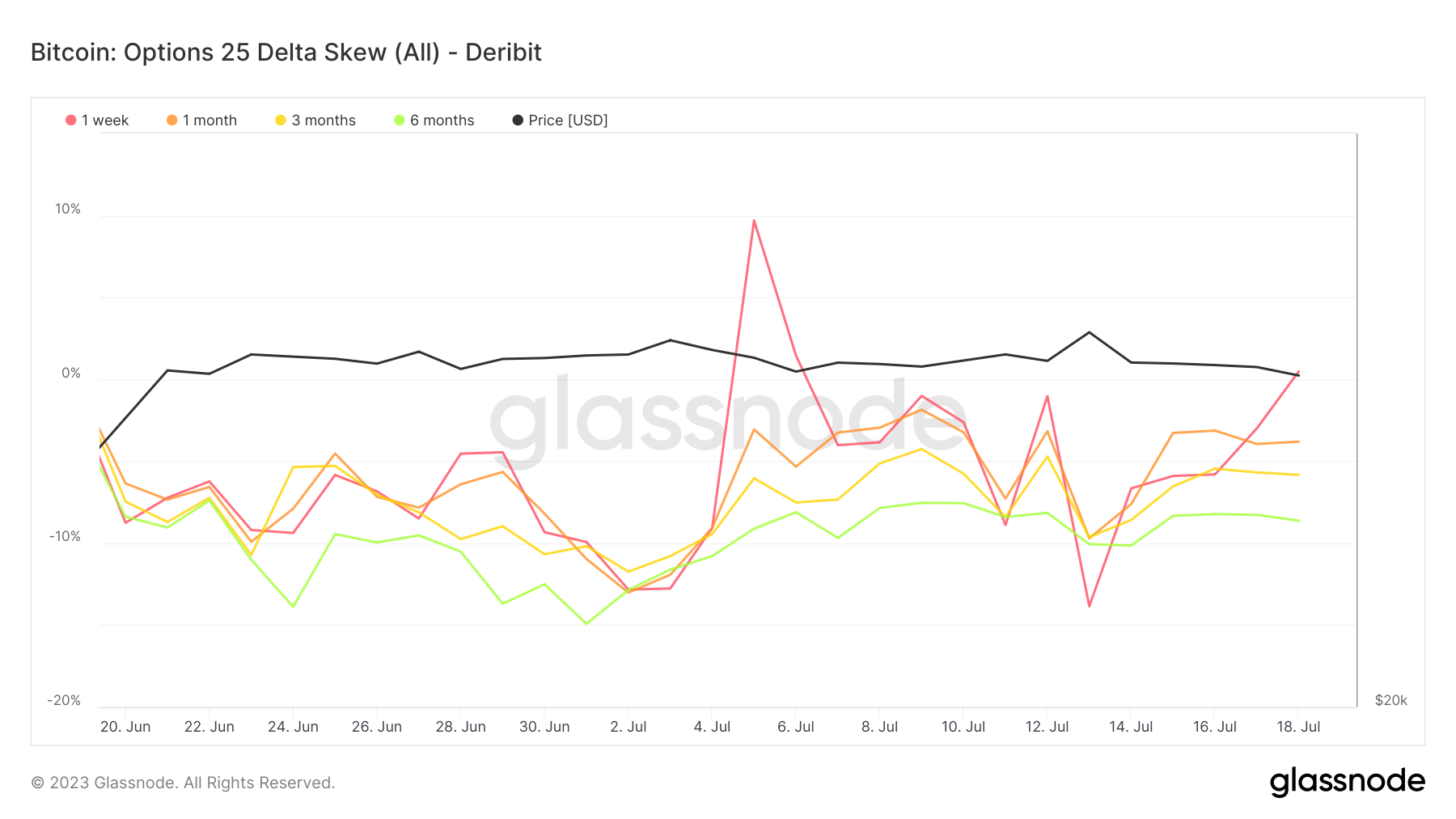
Delta skew, also known as the “skew” or “risk reversal,” is a measure of market sentiment often used in the options market. It measures the difference in implied volatility between out-of-the-money (OTM) puts and OTM calls.
If the market is bullish, OTM call options (options to buy above the current price) will have higher implied volatility than OTM put options (options to sell below the current price) because traders are willing to pay more for the chance to buy the asset at a higher price in the future, expecting the price to rise. This situation results in a positive delta skew.
Conversely, if the market is bearish, OTM put options will have a higher implied volatility than OTM call options, resulting in a negative delta skew. In this case, traders are willing to pay more for the chance to sell the asset at a higher price in the future, as they expect the price to fall.
The 0.48% delta skew for Bitcoin options expiring in one week is slightly positive, indicating somewhat bullish to flat sentiment for BTC in the short term. However, the delta skew for options expiring in one month, three months, and six months is negative (-3.8%, -5.83%, and -8.62%, respectively), suggesting that the market sentiment becomes increasingly bearish over the longer term. Traders are willing to pay more for the chance to sell Bitcoin at a higher price in the future, expecting the price to fall.
This divided sentiment contrasts with the structure of the total open interest for Bitcoin call options, which stands at $9.7 billion. Open interest refers to the total number of outstanding options contracts that have not been settled. It is a critical metric that reflects money flow into the derivatives market.
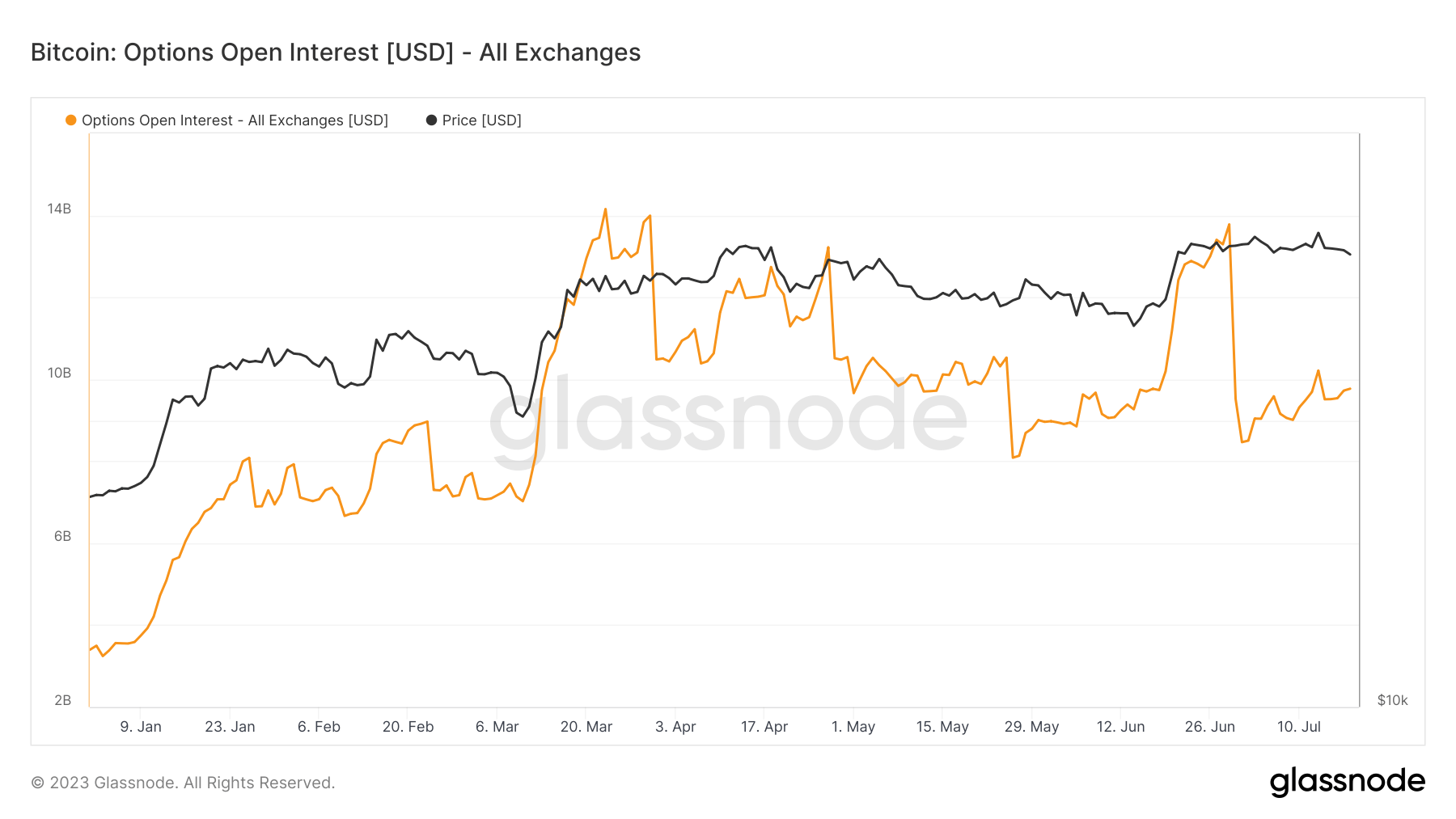
The total open interest for Bitcoin calls is $6.93 billion, significantly higher than the open interest for puts, which is $2.83 billion. This discrepancy could suggest that traders are generally more bullish on Bitcoin, expecting the price to increase, hence the higher number of call options.
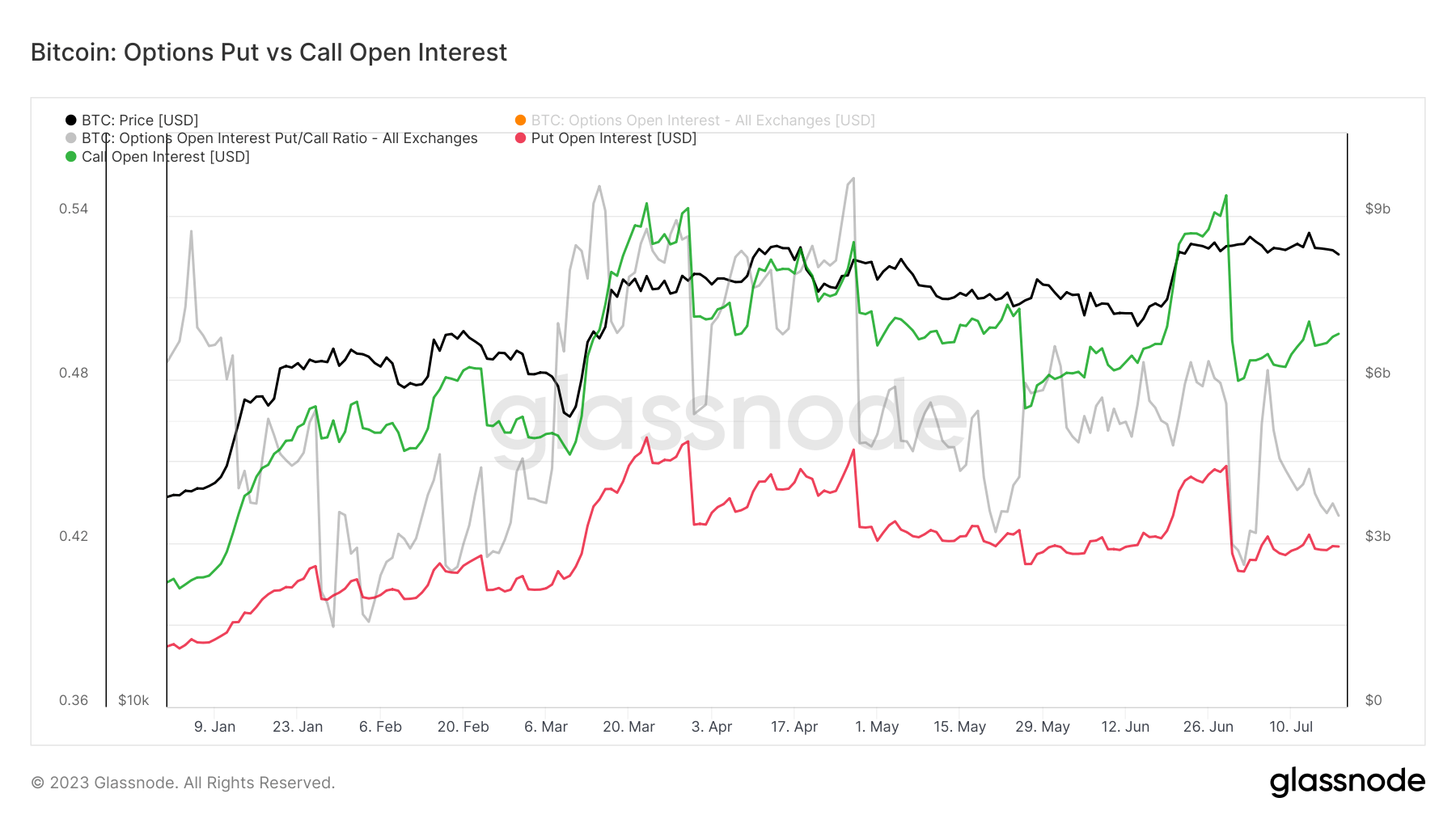
However, the open interest of call and put options by strike price for options contracts expiring on July 19 shows a different story. An equal amount of open interest, 365.4 BTC, is betting that BTC will fall below $30,000 and rise above $30,250-$30,500. This balance of interest indicates a market at a standstill, reflecting Bitcoin’s current price level.
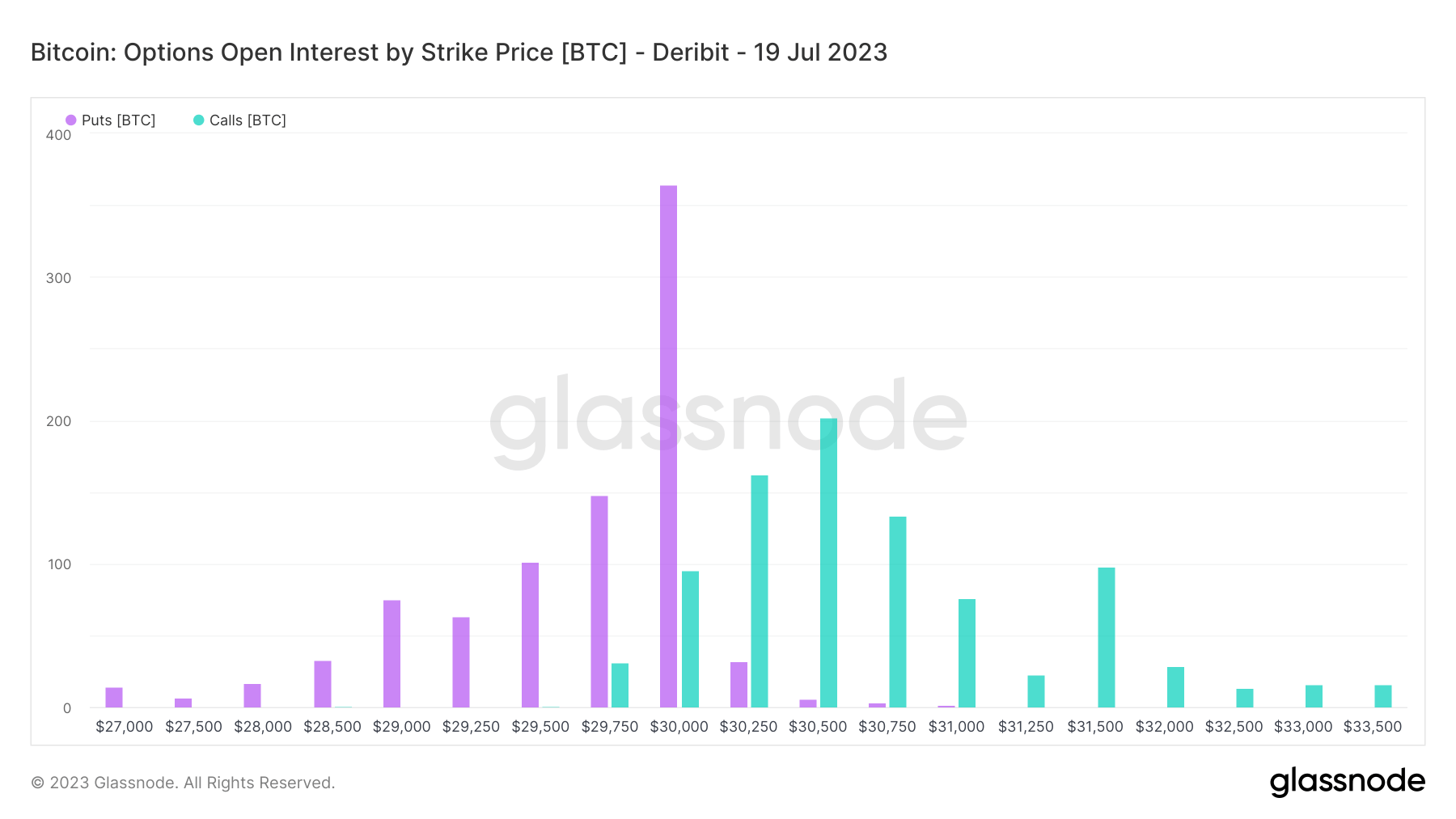
In conclusion, the indecisive derivatives market is keeping Bitcoin flat. While some traders are bullish, expecting a price increase, an equal number are bearish, betting on a price decrease. This division supports Bitcoin in a tight trading range, with little indication of a significant shift in the coming days.
Contrary to the bearish sentiment reflected in the options market, long-term forecasts by some experts suggest a more bullish viewpoint, with traders seemingly ready to ride out the current flat market in anticipation of future price rises.
The post An indecisive options market keeps Bitcoin flat appeared first on CryptoSlate.





